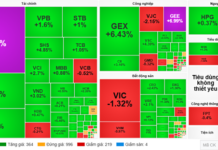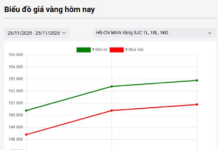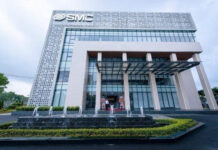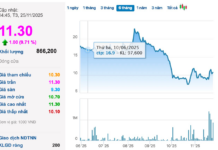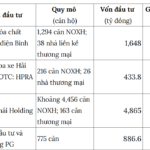According to the information provided by the Electricity Regulatory Authority (Ministry of Industry and Trade) on April 30, the competent authorities are gathering opinions in order to finalize a Draft Decree regulating the incentive mechanism for the development of residential, office, and industrial solar power systems.
In the said draft, one subject generating considerable input is the electricity output of excess self-generated and self-consumed solar power systems, which upon being fed into the national grid, is recorded by the electricity company at a price of 0 VND and is not subject to payment.
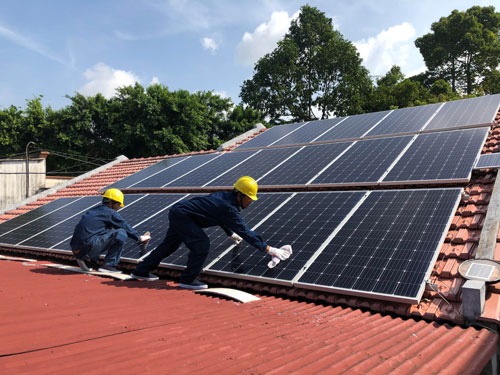
Ministry of Industry and Trade raises concerns over the potential disruption of the planning framework should households be allowed to sell surplus rooftop solar power. Photo: NLĐO
According to the heads of the Electricity Regulatory Authority, Power Development Plan VIII clearly highlights the prioritization and encouragement of the development of wind power and self-generated and self-consumed solar power, including rooftop solar power for residential and commercial buildings, and solar power at production and business facilities, for on-site consumption, without being connected to or selling electricity to the national power grid.
The Ministry of Industry and Trade emphasizes that the development of self-generated and self-consumed rooftop solar power systems is intended for self-use, to meet one’s own needs, thereby reducing the need to purchase electricity from the national power grid and easing the pressure on the power system.
Consequently, the Ministry of Industry and Trade has proposed to the Government that self-generated and self-consumed rooftop solar power systems be allowed to connect to the national power grid, be exempt from electricity operating licenses, and that other procedures be simplified…
The development of self-generated and self-consumed rooftop solar power systems enjoys several exemptions from strict legal provisions and criteria, and benefits from favorable policies; therefore, the Ministry of Industry and Trade is concerned that the sale of electricity could lead to a disruption of the national power planning framework, hamper the effective management of the grid system, jeopardize safety, and result in the exploitation of government policies.
The Ministry of Industry and Trade also notes that the development of self-generated and self-consumed rooftop solar power systems, whether connected to the national power grid or not, is the prerogative of organizations and individuals when developing such systems, and does not involve the sale of electricity to other organizations or individuals.
In the case of systems that are not connected to the national power grid, there are no restrictions on the installed capacity. In the case of systems that are connected to the national power grid, according to Power Development Plan VIII, the scale of self-generated and self-consumed rooftop solar power development by 2030 is approximately 2600MW within the power structure up to 2030. The scale of self-generated and self-consumed rooftop solar power capacity for the period up to 2030 has been allocated to various localities in Decision No. 262/QD-TTg dated 01/04/2024.
Furthermore, the Ministry of Industry and Trade acknowledges that despite substantial investments in grid infrastructure in recent years, it is still challenging to accommodate all power sources with varying capacities.
“If the development of self-generated and self-consumed rooftop solar power systems is encouraged and unlimited grid connectivity is allowed, the operation of the power grid by the Electricity of Vietnam Group will face significant challenges and the risk of compromising the safety of the national power system will be extremely high,” stated the Ministry of Industry and Trade.
According to the authority, the draft under development sets out regulations for two types of rooftop solar power development: grid-connected and off-grid. The 0 VND policy applies solely to the excess output of “self-generated and self-consumed” rooftop solar power systems that is fed into the national grid.
“The pricing of self-generated and self-consumed rooftop solar power fed into the national grid at 0 VND is a measure implemented by the government to motivate individuals and organizations to develop rooftop solar power systems to meet their own needs, thereby reducing the burden on the national power system,” explained the drafters. This is also aimed at preventing disruptions to the power source and grid planning framework, and ensuring the stability and sustainability of the national power system.
Under current circumstances, in terms of transmission and distribution systems and balancing the power source structure, the Ministry of Industry and Trade maintains that the solution to prevent reverse power flow and the solution of purchasing at a price of 0 VND in situations where electricity is fed into the national grid are necessary and appropriate, as they encourage the development of self-generated and self-consumed rooftop solar power systems while preventing the exploitation of these policies.

